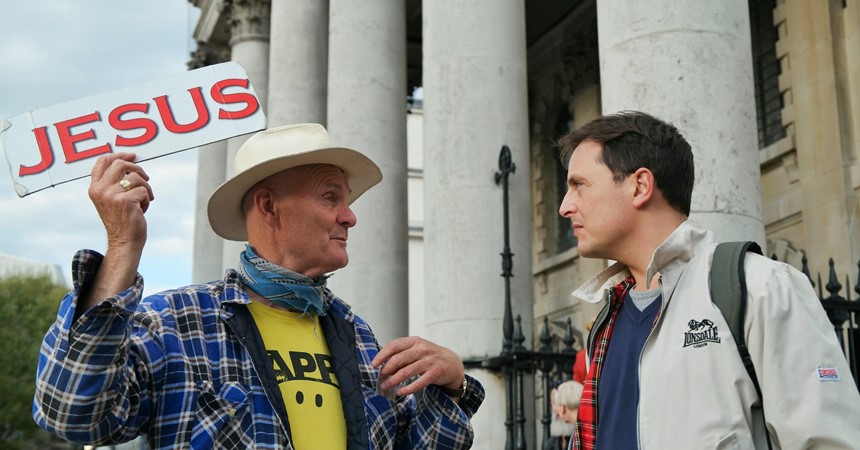This is one of my constant ponderings which has come into much sharper focus these past weeks in light of formation we have been hosting and parish conversations.
The ‘great commission’ we all received from Jesus as recorded in Mark’s Gospel is ‘Go out to the whole world; proclaim the Good News to all creation. (16:16) This commission appears in various forms throughout the Gospels. In Matthew’s Gospel Jesus sends us to make disciples, baptise them and teach them. (28:19)
Recently Fr Andrew Doohan and I finished facilitating the formation process ‘Go Make Disciples’ which immerses participants in the vision, principles and mystagogical processes of the Rite of Christian Initiation of Adults (RCIA). One of the most significant challenges participants reflected on was the lack of a sense of a missionary or evangelising imperative in the parish. Before there can be any initiation there must first be proclamation of the Good News of God’s love. The oft quoted words of St Francis of Assisi are echoing in my mind, ‘Preach the Gospel at all times and if necessary, use words’.
If we want vibrant parish communities, if we want meaningful liturgy, then we must first be bold in our evangelising. Liturgy exists for nothing else than to send us out on mission. Mass ends with powerful words, ‘Go and announce the Gospel of the Lord.’ Mass begins with the gathering of the disciples signed by the cross, returning from mission to be nourished again on Word and Sacrament for the week to come.
To help us ponder the mystery of what an evangelising parish might look like I invite you to read and reflect on the following article by Nick Wagner from Team RCIA who, with Diana Macalintal, visited us in October 2019. While Nick is reflecting from the frame of the RCIA, he is referring to how we live together in parish community as missionary disciples.
What is evangelization that is not weird?
“Do you know Jesus Christ as your personal Lord and savior?”
I did not immediately realize the young man on the sidewalk was talking to me.
“If you died today, do you know for sure you would go to heaven?” he asked as I was about to pass by.
He mistook my confusion for interest and continued with some Bible verses as I quickened my stroll to a near-jog. I later learned the young man was practicing “evangelization,” and I wanted nothing to do with it.
What I didn’t know at the time was that Pope Paul VI had recently published the seminal document, “On Evangelization in the Modern World,” in which he said that the church exists to evangelize. A few years later, when I started learning about the catechumenate, I discovered that whatever that young man on the sidewalk had been doing was not evangelization.
What is evangelization?
Evangelization, the Rite of Christian Initiation of Adults tells us, is what takes place during the first stage of the initiation process—the Period of Evangelization and Precatechumenate. Unfortunately, what a lot of parishes are doing during in this initial stage is also not evangelization. As Catholics, we haven’t had enough good models of evangelization, and therefore we flouder.
We know that interrogating strangers on the street is not effective evangelization. But what is evangelization that is authentic and not weird?
As catechumenate ministers, we have to let go of our image of evangelization as time-framed or curriculum-based. The period of evangelization in the catechumenate is not a “period” in the sense that the other periods of the process are. It has no beginning and no ending. It has not defined structure. We are always evangelizing.
It might also be helpful to expand our image of “inquiry,” which is how we often refer to this period. That’s not wrong, but it implies that people come to us to ask questions about what it means to be Catholic. The time of evangelization is a time for asking questions, but not like we think. The people most in need of Jesus’s message of love are not coming to our parishes to ask us questions.
Evangelization is much more about us going out than it is about people approaching us. But we don’t go to ask people if they know they are going to heaven.
Primacy of witness
We go out first of all to be shining examples on the hill. We live our faith “out loud.” We do this not by confronting strangers with Bible verses but by living as people of love, harmony, and joy. We also do not deny or cover up our suffering. Our vulnerability is a witness to the strength Christ gives us in our weakness.
And when we do that, day in and day out, people will ask questions. That is the way in which this is a period of inquiry.
Pope Paul VI said (and Pope Francis repeated), that living that way will “stir up irresistible questions in the hearts of those who see how [Christians] live: Why are they like this? Why do they live in this way? What or who is it that inspires them? Why are they in our midst? Why do they live that way?” (On Evangelization in the Modern World, 21).
Pope Francis says questions like these lead straight to the heart of evangelization—to the witness of faith and charity:
What we especially need in these times are credible witnesses who make the Gospel visible by their lives as well as by their words, and who reawaken the attraction for Jesus Christ, for the beauty of God. (October 14, 2013).
Urgency of going out to meet others
People won’t see us living in such a countercultural way, however, unless we go out to meet other people. Jesus is our model. He didn’t wait for the disciples to come to him. He went out to find them.
Every Christian is likewise called to go out, says Pope Francis, to:
- meet others
- dialogue with people who think differently than we do
- encounter those who have no faith or weak faith
Pope Francis teaches: “The Holy Spirit urges us to go beyond our own narrow confines and he guides us to the outskirts of humanity” (October 14, 2013).
A pastoral plan centered on the essential
Pope Francis, a former pastor and bishop in a real community, says we often get diverted by secondary or superfluous things. He urges us to focus on what is essential. He says that the essential fundamental reality is the encounter with Jesus. Encounter with:
- his mercy
- his love
- the love of our brothers and sisters
“We need a plan animated by the creativity and imagination of the Holy Spirit,” says the pope, “who also urges us to take new paths with courage without becoming fossils!” (October 14, 2013).
When that young man encountered me on the sidewalk, I didn’t know what evangelization was. And he didn’t either. Perhaps if I could have been more loving and joyful toward him, perhaps if I could have tried to find some harmony between us, perhaps if I could have been a little more open about my fear and embarrassment of not being a good enough Catholic…perhaps we could have wound up evangelizing each other that day.
And perhaps if all of us can be that kind of witness and go out more to encounter people who need to see that witness, and to always, always stay focused on Jesus’s mercy and love…perhaps we will see the day when the whole world is evangelized.
Your turn
What concerns do you have about evangelizing? How can you make it something that happens year-round? With everyone you meet?
Back to Louise
We stand in the midst of the paschal mystery. COVID-19 has caused much dying, much diminishment, much loss and much change. And in the dying comes the invitation to new life; the invitation to reimagine; the invitation to move forward rather than go back. How is this paschal moment inviting us to reimagine our parishes as evangelising communities of missionary disciples who make a significant difference in the life of the town or neighbourhood in which we live? Having experienced the love of God alive in our hearts, people might want to be part of our parish community. Let’s seize this moment.
Get together, ponder and act!
Acknowledgements
Photo by Malcolm Lightbody on Unsplash
‘What is evangelization that is not weird?’ by Nick Wagner. Copyright © 2022 TeamRCIA. All Rights Reserved.

